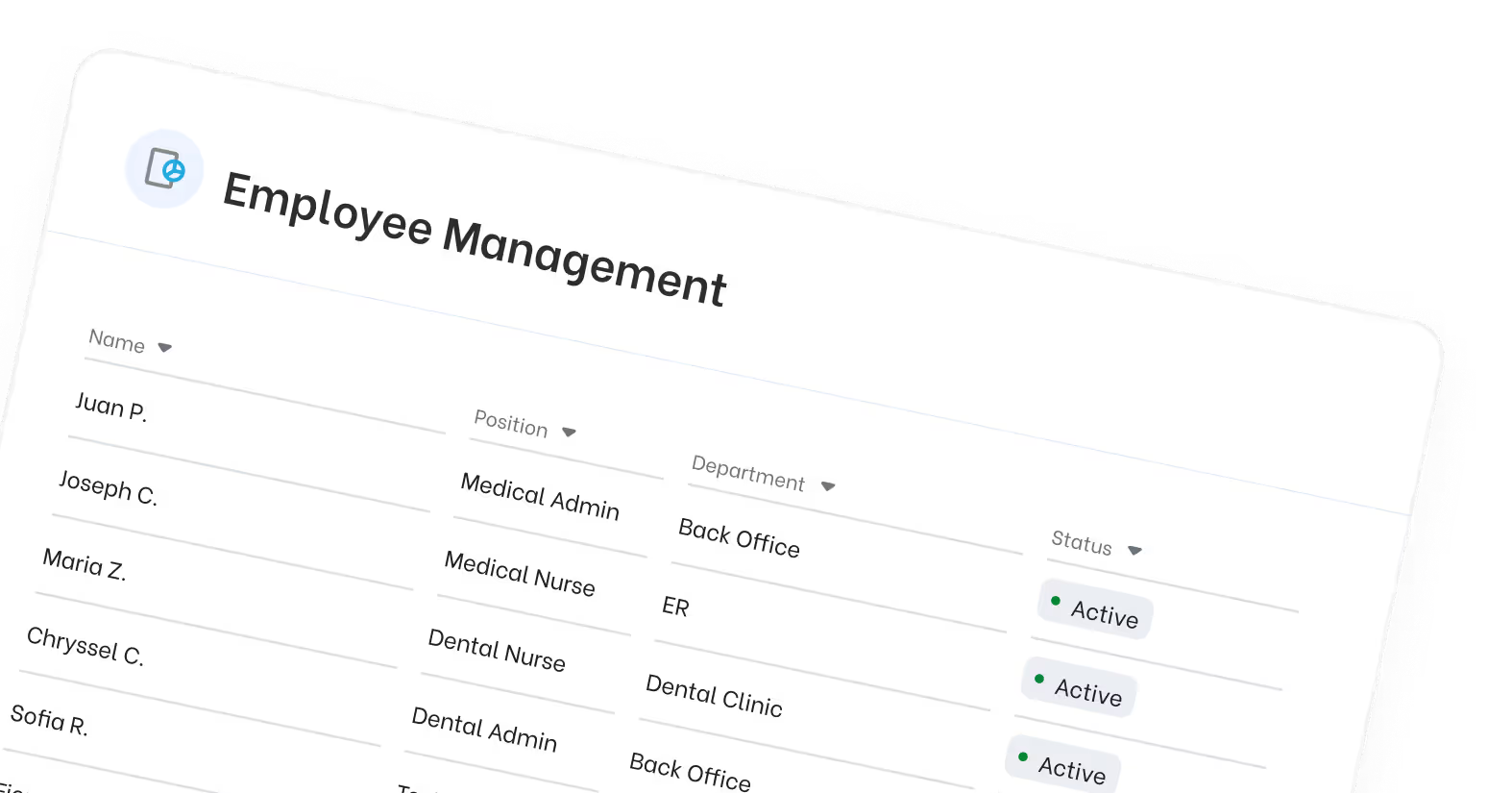Top 5 Reasons Clinics Are Shifting to Virtual Staff in 2025

Many clinics are moving to virtual staffing to reduce costs and improve operations. Traditional hiring models create delays and administrative overload. These problems reduce care quality and limit profitability.
Virtual healthcare staff handle remote tasks such as appointment setting, claims processing, and follow-ups. They allow in-house teams to focus on patient-facing responsibilities.
The virtual assistant market is growing nearly 30 percent annually. Most clinics have yet to adopt this model. Those that do gain a competitive edge in staff efficiency and patient satisfaction.
MedVirtual has supported hundreds of clinics in transitioning to virtual teams. Below are five specific reasons more clinics are adopting this approach in 2025.
Key Takeaways
- Virtual staff reduce operational costs by up to 70% compared to in-house hires.
- Clinics gain flexible, scalable support without sacrificing quality or compliance.
- MedVirtual offers healthcare-trained assistants ready to integrate within days.

Reason #1: Combating Healthcare Staff Burnout and Turnover
Healthcare staff burnout continues to rise. One of the main contributors is administrative overload. Nurses and providers spend hours on scheduling, documentation, and insurance coordination. These tasks reduce time for direct patient care.
Staff replacement costs are high. Recruiting, onboarding, and training take months. When employees leave due to burnout, the cycle repeats.
Virtual healthcare staff take over routine administrative duties. This can reduce in-house workloads by more than 10 hours per week. Clinics report fewer resignations, steadier performance, and better patient continuity when support staff are virtual.
With fewer interruptions and more focus on patient care, team morale and retention improve.
Reason #2: Significant Cost Savings and Financial Efficiency
Hiring virtual staff reduces total operating costs. Clinics report savings between 30 and 70 percent compared to full-time in-house employees.
There are no costs for physical space, office equipment, or employee benefits. Payroll taxes, paid time off, and recruiting expenses are also eliminated.
Clinics only pay for the hours or services they use. This allows for better budget control. It also eliminates the risk of over-hiring or underutilizing staff.
Virtual staffing supports leaner operations and more predictable expenses.
Reason #3: 24/7 Availability and Enhanced Patient Communication
Most patients expect timely responses. Delays in communication affect trust and retention.
Virtual assistants provide extended coverage. They can handle calls, scheduling, and messages beyond regular office hours.
This improves response times and reduces missed appointments. Virtual staff can manage communication across multiple channels, including phone, email, and chat.
Clinics with bilingual virtual assistants can also serve a more diverse patient base more effectively.
Reason #4: Streamlined Administrative Operations and Workflow Efficiency
Administrative work limits provider efficiency. Manual tasks like claims, authorizations, and documentation consume valuable hours.
Virtual assistants are trained to complete these tasks using industry tools and systems. This leads to faster turnaround and fewer errors.
They can integrate with EHR platforms and ensure accurate data entry. Their support keeps operations compliant and consistent.
This improves staff focus and clinic output without requiring additional in-house hires.
Reason #5: Scalability and Flexibility for Growing Practices
Hiring and scaling staff is resource-intensive. It takes time to recruit and onboard. Downsizing is often slow and disruptive.
Virtual staffing allows clinics to scale faster. They can increase support during high-demand periods and reduce hours during slower months.
Specialized roles can be added on a short-term basis without long contracts.
Fewer than one in five clinics currently use virtual staff. Adopting early gives clinics a cost and speed advantage.
Cost Breakdown: Virtual Staff vs In-House Employees
Hiring in-house means paying for salaries, benefits, office space, and equipment. A full-time front desk employee may cost $3,500 to $4,500 per month with taxes and benefits included. If turnover is high, the cost of rehiring and training adds even more.
In contrast, a trained virtual assistant can cost as little as $1,200 to $2,000 per month. There are no additional costs for space, hardware, or insurance. The clinic pays only for hours worked or tasks completed.
This pricing flexibility is especially important for small clinics or practices with seasonal fluctuations. Virtual staff can be scaled up or down without affecting fixed expenses. Over time, clinics gain financial consistency and reduced overhead.
How MedVirtual Can Help Your Practice Make the Transition
MedVirtual offers healthcare-specific virtual staffing solutions. We understand medical operations, compliance, and staff workflows. Our virtual roles include:
- Medical receptionists
- HIPAA-trained assistants
- Billing and insurance support
- Telehealth coordinators
We start with a consultation. Then we match you with vetted professionals trained in healthcare environments. Our onboarding ensures your new team integrates fast and works within your systems.
Our assistants are HIPAA-trained. They follow strict data protocols. We offer flexible models - part-time, full-time, or project-based - to fit your needs and budget.
MedVirtual's Simple Hiring Process
MedVirtual makes it easy to hire reliable, healthcare-trained virtual staff. Our hiring process is structured, fast, and tailored for clinical operations.
Schedule a Discovery Call
We begin with a consultation to understand your clinic’s workflows, technology systems, staffing gaps, and compliance needs.
Staff Matching
We match your clinic with HIPAA-certified professionals who are trained in EHR systems, billing software, and healthcare communication protocols. Every assistant is vetted through a multi-step screening process and selected based on the specific tasks your clinic needs to offload.
Onboarding and Setup
We coordinate with your internal team to integrate the new assistant into your tools and systems. Most clinics complete onboarding within 3 to 5 days. Our team assists with credential access, calendar syncing, and training.
Ongoing Support
You receive regular check-ins from our account team to ensure performance alignment. We offer real-time feedback loops, reassignment options, and built-in performance reviews to maintain long-term quality.
Whether you're starting with a single role or scaling up a full virtual team, MedVirtual's process is built for speed, clarity, and clinic-grade reliability.
Is Your Practice Ready to Join the Virtual Staffing Revolution?
The evidence is clear. Virtual staff solve today’s biggest clinic challenges and prepare you for the future.
Are you dealing with staff burnout? Rising costs? Missed calls? Admin overload? Difficulty scaling?
These problems don’t solve themselves. But they can be solved - with the right virtual partner.
Ready to discover how MedVirtual can transform your practice?
Contact us for a free consultation. We’ll discuss your pain points and show how virtual healthcare staff can help - starting as soon as next week.
Don’t wait for your competitors to act first. The future of staffing is virtual. And it’s already here.

Frequently Asked Questions
How quickly can I get started with a virtual assistant?
Most clinics complete the setup and onboarding process within 3 to 5 business days after the discovery call.
Are MedVirtual assistants HIPAA-compliant?
Yes. All MedVirtual staff are trained in HIPAA protocols and data security standards. They work within your existing systems under strict compliance requirements.
What systems can MedVirtual staff work with?
Virtual assistants can integrate with most EHRs, practice management systems, CRMs, and scheduling platforms. Compatibility is confirmed during onboarding.
Can I hire a part-time or project-based assistant?
Yes. MedVirtual offers flexible models, including part-time, full-time, and task-specific staffing based on your clinic’s needs.
What roles can virtual staff fill?
MedVirtual can provide virtual receptionists, billing assistants, pre-authorization coordinators, patient follow-up support, and telehealth coordinators.






